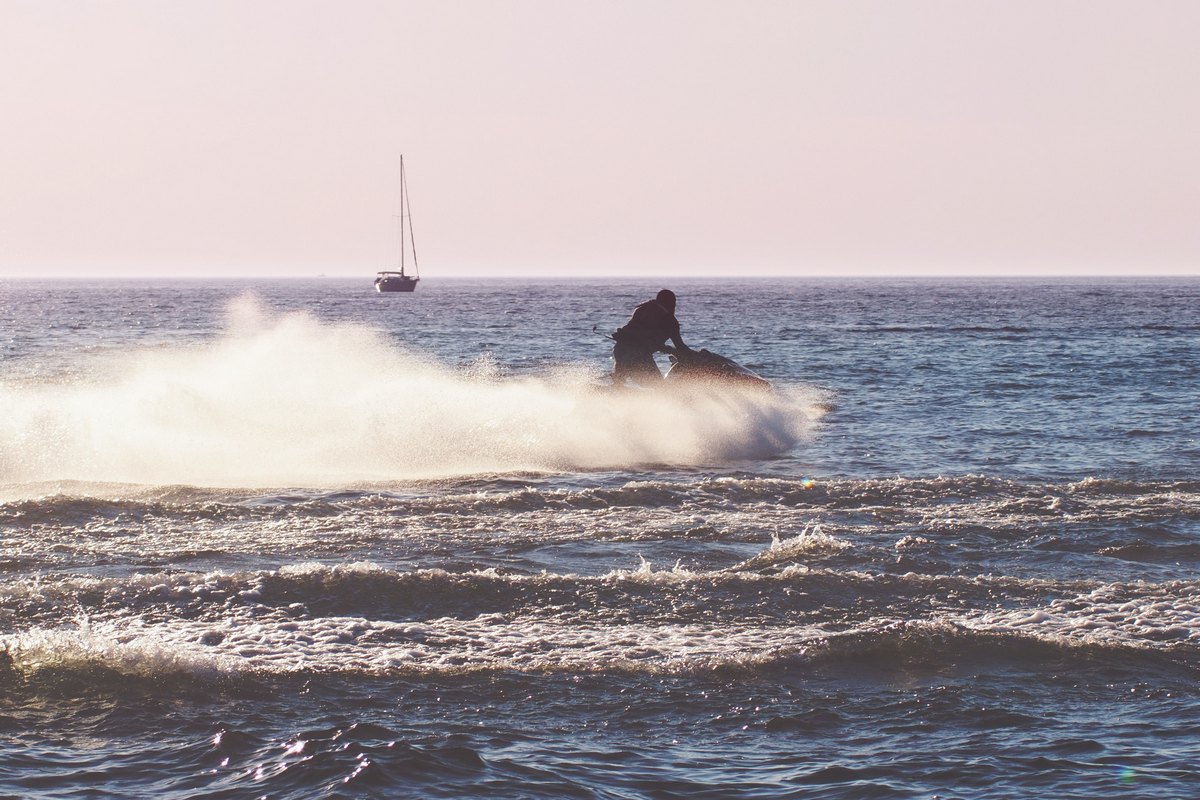Maritime agencies in Cornwall have issued a warning after reports of anti-social behaviour relating to the use of personal watercraft (sometimes known as Jet Skis, although this is a trademark specifcally of Kawasaki craft).

Photograph: Unsplash/Justin Heap
An investigation was launched into the crafts’ usage in the Truro and Penryn harbour areas, but complaints have also been made at St Ives, Porthpean, and Padstow.
In Penzance, hundreds of residents have signed a petition asking for them to be banned, while Devon and Cornwall Police say they have noted a rise in complaints after a potential conflict between beachgoers and personal watercraft users at Mounts Bay, as well as with swimmers off the Battery Rocks to the south of the harbour.
Cornwall’s maritime manager, Christopher Jones, said: “This is an increasing trend. Sadly, alongside all those jet ski users who are considerate and respectful of other sea and beach users, there is a small element who behave antisocially, even dangerously.
“In Cornwall, harbour masters, police and HM Coastguard are concerned about the potential conflict between these fast and sometimes unstable vehicles, and others using the water to make their living or for leisure.
“All the maritime agencies are working together to improve safety for coast, harbour, and beach, and we will be keeping a close eye on jet ski and powerboat use this season.”
Loic Rich, Cornwall’s Harbour Board Chairman, said: “We recognise jet skiing is a legitimate and popular sport, but we must challenge irresponsible and antisocial use where personal safety and navigation of other vessels is put at risk.
“Beachgoers and swimmers, including so-called ‘wild swimmers’ at sea, have felt threatened by the speed and proximity of personal watercraft. Our Harbour Authority staff across Cornwall Council’s 12 harbours will be working closely with the police and HM Coastguard, and making use of CCTV to identify offenders. This can result in prosecution, and seizure of the jet skis concerned.”
Guidance on safe use is published by the Personal Watercraft Partnership, and advises against ‘wave jumping’ behind boats, revving engines in shallow beach areas, weaving in and out of anchorages, and entering areas where there are swimmers.



